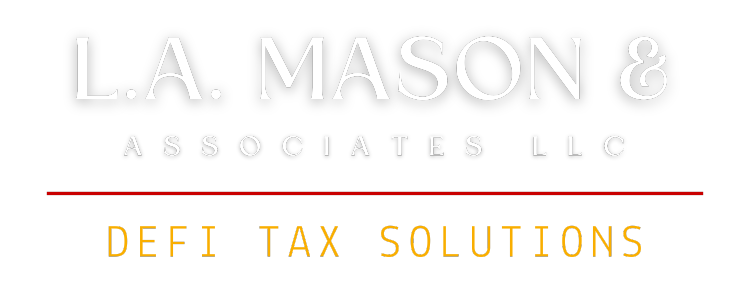Fortifying Your Finances: How to Safeguard Your Assets from Creditors
Hey, Yall!
We’ve all heard it, “Failing to plan is planning to fail.” In today’s unpredictable financial landscape, understanding how to protect your wealth is paramount for securing your family’s future. Protecting your hard-earned assets from creditors is a vital aspect of managing your financial security. In this blog, we’ll explore effective methods to safeguard your assets and reduce your exposure to potential creditors.
Asset Protection Trusts
One powerful tool for protecting your assets is an asset protection trust. This legal document establishes a separate legal entity to hold and manage your assets. By transferring your assets into the trust, you can shield them from creditors’ claims. However, it’s essential to note that the effectiveness of asset protection trusts can vary based on the jurisdiction and specific circumstances.
An asset protection trust (APT) is a type of irrevocable trust that is designed to protect your assets from creditors. It is different from a revocable living trust in a few key ways:
- Irrevocability: An APT is irrevocable, meaning that once you create it, you cannot change it or revoke it without the consent of the beneficiaries. This makes it more difficult for creditors to reach your assets. A revocable living trust, on the other hand, can be changed or revoked at any time.
- Asset ownership: In an APT, the trust owns your assets, not you. This makes it difficult for creditors to seize your assets in a lawsuit. In a revocable living trust, you still own the assets in the trust, and creditors may be able to seize them in a lawsuit.
- Beneficiaries: The beneficiaries of an APT are typically your children or grandchildren. You can also name yourself as a beneficiary, but you will have limited control over the assets in the trust. The beneficiaries of a revocable living trust can be anyone you choose, and you can retain full control over the assets in the trust during your lifetime.
APTs are typically used by people who are at high risk of being sued, such as business owners and professionals. They can also be used by people who want to protect their assets from future creditors, such as people who are getting divorced or who have aging parents who may need long-term care.
Revocable living trusts are typically used for estate planning purposes, such as avoiding probate and distributing your assets to your beneficiaries after your death. They can also be used for asset protection, but they are not as effective as APTs.
If you are considering creating an APT, it is important to speak with an experienced estate planning attorney. They can help you to determine if an APT is right for you and to create a trust that meets your individual needs.
Limited Liability Companies (LLCs)
If you’re a business owner or have substantial investments, consider structuring them under a Limited Liability Company (LLC). LLCs provide limited liability protection to their owners, ensuring that personal assets remain separate from business assets. This means your personal assets are generally shielded from the debts and liabilities of the LLC.
Homestead Exemptions
Many states offer homestead exemptions, which safeguard a specified amount of equity in your primary residence from creditors’ claims. These exemptions can vary significantly from state to state, so it’s essential to understand the rules in your jurisdiction.
Retirement Accounts
Retirement accounts, such as 401(k)s and IRAs, typically enjoy protection from creditors. These accounts are designed to help you save for your future, and the law generally shields them from creditors’ reach. However, there are certain exceptions, so it’s wise to consult with a legal expert to ensure your retirement savings remain secure.
Life Insurance
The proceeds from a life insurance policy are generally protected from creditors. Life insurance is designed to provide financial security to your beneficiaries, and the law typically respects this purpose.
It’s crucial to understand that while these methods can provide substantial protection, no strategy is entirely foolproof. Creditors who secure a judgment against you may still attempt to seize your assets, even those protected by these methods.
If safeguarding your assets from creditors is a concern, consulting with an experienced estate planning attorney is a prudent step. They can help you create a comprehensive asset protection plan tailored to your specific needs and reduce the risk of losing your assets to creditors.
Here are some additional tips to enhance your asset protection strategy:
- Proactive Planning: Start planning early and establish asset protection measures before any legal threats arise.
- Full Disclosure: Be transparent with your attorney about all your assets and debts. This honesty will facilitate the development of an effective, customized plan.
- Maintain Accurate Records: Keep detailed records of your assets and liabilities to track your financial situation and ensure your asset protection plan remains effective.
- Regular Reviews: Periodically review your asset protection plan. As your financial situation evolves, make necessary updates to adapt to changing circumstances.
Sign up for our #30DayLegacy challenge to get started. While you’re at it, download our free ebook, “A Comprehensive Guide to Simple Estate Planning.” Ready to dive deeper? Check out our guided workbook, “Wealthy Legacy: 10 Steps to Creating Generational Wealth.”
Keep Living!
LA🌻🖤
Chief Strategist






